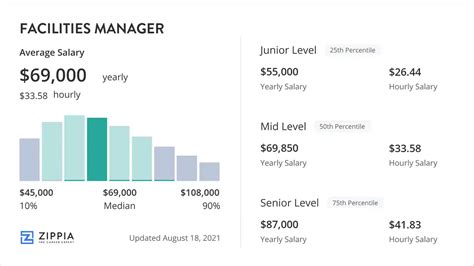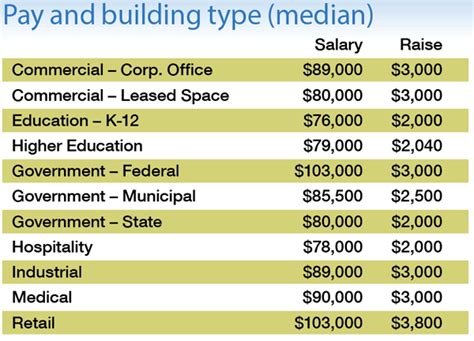A career as a Facility Manager (FM) places you at the very heart of an organization's operations, making you the strategic mind responsible for the spaces where people work, learn, and live. It's a dynamic role that blends leadership, technical knowledge, and business acumen. But beyond the professional satisfaction, is it a financially rewarding career?
The short answer is a resounding yes. A career in facility management offers strong financial potential, with many professionals earning six-figure salaries. The national average salary for a facility manager often hovers around $100,000, with a typical range falling between $75,000 for early-career professionals to well over $135,000 for those in senior roles with specialized skills.
This guide will provide a detailed breakdown of a facility manager's salary, explore the key factors that dictate your earning potential, and examine the career's promising future.
What Does a Facility Manager Do?

Before we dive into the numbers, it's essential to understand the scope of the role. A Facility Manager is far more than a building supervisor; they are strategic leaders who ensure the functionality, comfort, safety, and efficiency of a built environment. Their responsibilities are vast and varied, often including:
- Strategic Planning: Aligning facility management with the organization's long-term goals.
- Operations & Maintenance: Overseeing all building systems, including HVAC, plumbing, and electrical.
- Budget & Finance: Developing and managing facility budgets, and overseeing procurement and vendor contracts.
- Health & Safety: Ensuring compliance with all safety regulations (e.g., OSHA) and emergency preparedness.
- Space Management: Optimizing the use of space to enhance productivity and employee experience.
- Sustainability: Implementing green initiatives to improve energy efficiency and reduce environmental impact.
In essence, FMs create and maintain the environments that allow organizations to thrive.
Average Facility Manager Salary

Salary data for facility managers can vary slightly depending on the source, as each uses a different methodology. By looking at several authoritative sources, we can get a clear and reliable picture of the current market.
- The U.S. Bureau of Labor Statistics (BLS) classifies this role under "Administrative Services and Facilities Managers." As of May 2023, the BLS reports a median annual wage of $107,810. The lowest 10 percent earned less than $62,170, while the top 10 percent earned more than $181,290.
- Salary.com, which aggregates real-time, employer-reported data, lists the median U.S. salary for a Facility Manager at approximately $109,514, with a typical range between $95,306 and $125,584.
- Glassdoor, which relies on user-submitted data, reports a total pay estimate of around $112,000 per year, which includes a base salary and additional compensation like cash bonuses or profit sharing.
This data paints a consistent picture: a well-compensated profession with significant room for growth as you gain experience and specialized skills.
Key Factors That Influence Salary

Your specific salary as a facility manager isn't set in stone. It is influenced by a combination of personal qualifications and external market forces. Understanding these factors is key to maximizing your earning potential.
###
Level of Education
While a bachelor's degree is the standard entry point for many facility management positions, the type of education and, more importantly, professional certifications can significantly impact your salary.
- Degree: A bachelor's degree in business administration, engineering, architecture, or a dedicated facility management program provides a strong foundation. A master's degree (e.g., an MBA or an M.S. in Facility Management) can open doors to senior leadership roles and command a higher salary.
- Certifications: Professional certifications are highly valued in this field as they demonstrate a proven level of expertise and commitment. According to the International Facility Management Association (IFMA), holding a certification can boost a salary by a significant margin. The two most recognized certifications are:
- Facility Management Professional (FMP®): An excellent credential for early to mid-career professionals.
- Certified Facility Manager (CFM®): The gold standard for experienced FMs, often leading to a substantial increase in earnings and qualifying you for top-tier positions.
###
Years of Experience
Experience is one of the most powerful drivers of salary growth in facility management. As you move from operational tasks to strategic leadership, your value—and your paycheck—increases accordingly.
- Entry-Level (0-4 years): Professionals in this stage are often in roles like Facility Coordinator. They are learning the ropes and can expect a starting salary in the range of $65,000 to $80,000.
- Mid-Career (5-10 years): As a Facility Manager with proven experience, you'll manage more complex projects and larger budgets. Salaries typically rise to the $85,000 to $115,000 range.
- Senior-Level (10+ years): Senior Facility Managers, Directors of Facilities, or VPs of Real Estate oversee entire portfolios, large teams, and multimillion-dollar budgets. These leaders can command salaries of $120,000 to $180,000+, especially with specialized expertise.
###
Geographic Location
Where you work matters. Salaries are adjusted based on the local cost of living and the demand for skilled professionals in that market. Major metropolitan areas with high costs of living and a concentration of large corporations typically offer the highest salaries.
According to BLS data, top-paying states for this profession include:
- New York
- New Jersey
- District of Columbia
- California
- Washington
A facility manager in San Francisco or New York City can expect to earn 20-30% above the national average, while a similar role in a smaller, rural market may pay below the average.
###
Company Type and Size
The industry and size of your employer play a critical role. FMs who manage complex, high-stakes environments are compensated at a premium.
- High-Paying Industries: Industries like technology (especially data centers), healthcare (hospitals and labs), biotechnology, and finance place a massive value on operational uptime and regulatory compliance, leading to higher salaries for FMs.
- Company Size: A Facility Director at a Fortune 500 company with a global real estate portfolio will earn substantially more than an FM at a small non-profit or a single-location manufacturing plant. Larger companies have bigger budgets, more complex challenges, and greater responsibility.
###
Area of Specialization
Developing expertise in a high-demand niche is a surefire way to increase your salary. Generalist FMs are always needed, but specialists who can solve complex problems are compensated at a premium.
Key specializations include:
- Data Center Management: Requires deep technical knowledge of critical cooling and power systems where downtime is catastrophic.
- Healthcare Facilities: Involves navigating strict regulatory environments like The Joint Commission and ensuring patient safety.
- Sustainable Buildings (LEED/Green Buildings): Focuses on energy efficiency and sustainability, a growing priority for major corporations. Professionals with LEED credentials are in high demand.
- Corporate Real Estate: Blends facility management with real estate strategy, including leasing, acquisition, and portfolio management.
Job Outlook

The future for facility managers is bright. The BLS projects that employment for administrative services and facilities managers will grow by 5 percent from 2022 to 2032, which is faster than the average for all occupations.
This growth is fueled by several trends:
1. Aging Infrastructure: Many buildings need retrofitting and modernization to become more energy-efficient and technologically advanced.
2. Focus on Sustainability: Companies are increasingly focused on reducing their carbon footprint, creating a need for FMs with expertise in green technology.
3. The Evolving Workplace: The shift toward hybrid work models requires strategic space management to create collaborative and flexible office environments.
Conclusion

A career in facility management is an excellent choice for individuals who are organized, strategic, and enjoy solving complex problems. It offers not only a dynamic and essential role within an organization but also a clear path to a strong, six-figure salary.
To maximize your earning potential, focus on building a strategic career path:
- Invest in Education and Certifications: A degree and a credential like the CFM® can unlock the highest-paying roles.
- Gain Diverse Experience: Don't be afraid to take on complex projects to build your skill set.
- Consider High-Growth Industries and Locations: Positioning yourself in a thriving market can significantly accelerate your salary growth.
For those ready to lead from the operational core of a business, a career in facility management is a stable, growing, and financially rewarding path.
